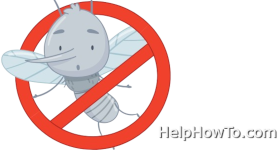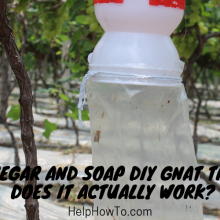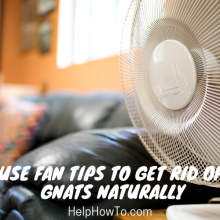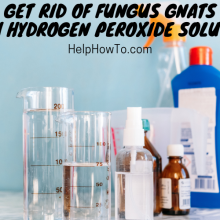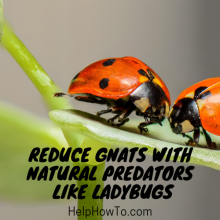Kill Gnats With Essential Oils Like Lavender And Peppermint | HelpHowTo
Summary of Killing Gnats With Essential Oils Like Lavender And Peppermint
The article provides an in-depth guide on using essential oils, particularly lavender and peppermint, as a natural and eco-friendly solution for controlling gnat infestations. It covers different types of gnats, their breeding habits, and the insect-repelling and insecticidal properties of lavender and peppermint oils. The article offers recipes for homemade gnat sprays, traps using oil-soaked cotton balls or sticky surfaces, and diffusing oil blends.
It recommends complementing essential oils with other deterrents like removing food sources, using fans, and Installing screens. Potential downsides like limited effectiveness for severe infestations, pet/child safety, and costs are discussed. Overall, the article promotes essential oils as a low-toxicity method that, with patience and persistence, can eliminate gnats from homes without harsh chemicals.
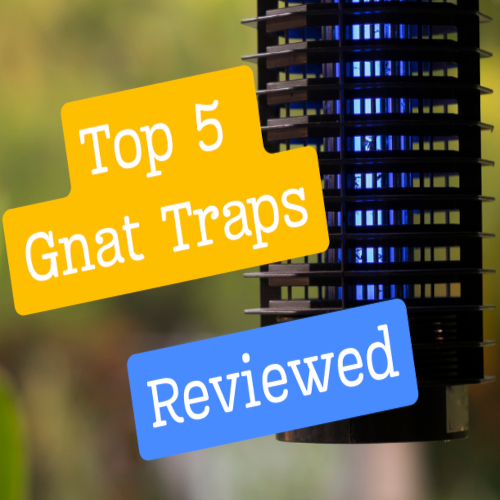
Our Top 5 Recommended Indoor Genat Traps
Sick of pesky gnats invading your home? Discover the top 5 indoor gnat traps to banish these annoying insects for good! Our expert reviews reveal the most effective, easy-to-use traps. From powerful UV attractants to eco-friendly vinegar traps, we’ve thoroughly tested and ranked the best solutions. Check Now

Getting Rid of Gnats Naturally With Essential Oils
If you’ve ever done the annoying gnat dance – waving your arms around trying to shoo away those pesky little flies – you know just how frustrating gnat infestations can be. While seemingly minor, gnats can quickly become a major nuisance, swarming around your kitchen, bathroom, houseplants, and more. Even worse, some species like drain gnats and fruit flies can contaminate food and spread bacteria.
Rather than resorting to chemical insecticides loaded with harsh ingredients, many people are turning to natural, eco-friendly solutions like essential oils to control gnat populations. Certain oils have insect-repelling and insecticidal properties that can be highly effective against gnats.
Understanding Gnat Types and Behavior
To properly combat gnats, it helps to know what you’re dealing with. Gnats actually encompass several different types of small flies:
Fruit flies are likely the most common, attracted to overripe/fermenting produce and damp organic matter. Fungus gnats breed in moist potting soil of houseplants. Drain flies live and multiply in the gunk inside drains. Eye gnats are tiny flies that swarm around faces and eyes.
Despite their differences, all gnats share a rapid reproduction cycle – going from egg to adult in as little as a week. They’re also persistent, constantly seeking out new food sources and breeding sites like decaying organic materials and standing water.
The Power of Lavender and Peppermint Oils
Among essential oils, lavender and peppermint are two of the most popular and useful for shooing away gnats. Their strong aromas contain natural compounds that repel and can ultimately kill gnats.
Lavender oil has insecticidal properties stemming from compounds like linalool and linalyl acetate. Its powerful floral scent confuses and repels gnats. Peppermint oil contains menthol, a highly effective insect repellent and killer. The cooling menthol aroma overwhelms gnats’ senses.
Both oils are relatively inexpensive, easy to find, and considered safe when used properly. Their fresh, pleasing scents are also a nice bonus compared to synthetic chemical sprays.
Essential Oil Sprays and Traps
One of the simplest ways to use lavender and peppermint oils is in a homemade gnat spray. Just add about 10-15 drops of the essential oil to a spray bottle filled with water and a few drops of dish soap (to help the oil disperse). Shake well and use as a spray around windows, doors, sinks, and other areas where gnats lurk.
You can also make essential oil gnat traps to kill off adult flies. Some options:
•Bowl trap: Fill a small bowl with water, dish soap, and 10-15 drops of lavender or peppermint oil. Gnats will be attracted to the smell but drown in the soapy mixture.
•Sticky trap: Coat a piece of cardboard or paper with a thin layer of honey or sugar water mixed with essential oils. Gnats will stick to the sweet, scented surface.
•Cotton ball trap: Soak cotton balls in undiluted essential oils and place them around areas where you see lots of gnats.
Check and refresh traps frequently until gnat activity subsides.
Essential Oil Diffusers
While sprays and traps help in small areas, running an essential oil diffuser is useful for repelling gnats from entire rooms or open spaces. Look for ultrasonic diffusers which use water to disperse the oil into a fine, fragrant vapor.
Some recommended diffuser blends include:
•Lavender and peppermint
•Lemongrass and eucalyptus
•Equal parts lavender, lemon, and rosemary
You can also just diffuse single oils like pungent lemongrass or citrusy lemon eucalyptus. Diffuse in rooms where gnats are an issue, refreshing the oil blend as needed.
Complementary Natural Gnat Control
Maximize your essential oil efforts by combining them with other eco-friendly gnat deterrents:
•Grow gnat-repelling plants like herbs, marigolds, citronella, and chrysanthemums.
•Eliminate sources of standing water where gnats breed.
•Clear away decaying organic matter like old produce, grass clippings, etc.
•Use fans to create air movement that gnats struggle against.
•Install good window and door screening to keep gnats out.
Potential Downsides of Using Essential Oils
While essential oils offer a natural, low-tox alternative to conventional insecticides, there are a few potential downsides to consider:
•Limited effectiveness for severe infestations. For major gnat problems, professional pest control may be required.
•Strong aromas from diffused oils can cause headaches/nausea in some people. Proper ventilation helps.
•Lavender oil in particular can be toxic to cats and dogs if ingested or overexposed. Use with caution around pets.
•Skin irritation may occur with undiluted essential oil exposure. Always dilute oils before applying to skin.
•Cost of buying multiple oils/products for effective gnat control can add up over time.
With some basic precautions and by following usage guidelines, most people can safely utilize the gnat-fighting powers of essential oils in their homes.
Patience and Persistence Pay Off
Consistent, thorough application of essential oil sprays, traps, diffusers, and complementary methods is key to winning the battle against gnats. Their rapid reproduction cycles mean it can take some time to fully eliminate existing populations.
However, by sticking with it and maintaining a multi-pronged strategy using natural ingredients like lavender and peppermint oils, you can eventually clear your living spaces of these pesky uninvited guests – without harsh chemicals. Breathe easy and enjoy your gnat-free home!

Our Top 5 Recommended Indoor Genat Traps
Sick of pesky gnats invading your home? Discover the top 5 indoor gnat traps to banish these annoying insects for good! Our expert reviews reveal the most effective, easy-to-use traps. From powerful UV attractants to eco-friendly vinegar traps, we’ve thoroughly tested and ranked the best solutions. Check Now
FAQs and Answers
How long does it take for essential oils to get rid of gnats?
The time it takes for essential oils to get rid of gnats can vary, but in general, it requires consistent and persistent use over several days or weeks.
Gnats have a very rapid reproduction cycle, going from egg to adult stage in as little as a week. So even if you kill off the adult gnats you see initially, new ones can quickly hatch and emerge if you don’t thoroughly disrupt their breeding areas.
With diligent use of essential oil sprays, traps, and diffusers, you may start to see a noticeable reduction in adult gnat populations within 3-5 days. However, completely eliminating an infestation can take 2-4 weeks or longer if you’re dealing with an established gnat breeding site.
The key is to frequently reapply essential oils through sprays and refreshed traps, while also removing any sources of moisture and decaying organic matter where gnats lay eggs. Combining essential oils with supplemental methods like fans and removing gnat attractants hastens their eradication.
Patience is required, as essential oils work more gradually compared to conventional insecticide sprays. But with repeated, thorough application, the insect-repelling and insecticidal properties in oils like lavender and peppermint will eventually break the gnat life cycle and drive them out.
Are some essential oil brands more effective than others against gnats?
Yes, some essential oil brands can be more effective than others when it comes to controlling gnats. There are a few key factors that can impact an essential oil’s potency and performance against gnats:
Quality/Purity
Higher quality, 100% pure essential oils tend to work better than lower grade or diluted oils. Top essential oil brands put more rigorous quality controls in place during the distillation and bottling process to ensure maximum purity levels of the active compounds that repel and kill insects like gnats.
Plant Source
Even among 100% pure oils, the location and conditions where the plants were grown can affect the concentration of insect-repelling compounds. For example, lavender grown in France is often considered higher quality than lavender from other regions.
Proper Extraction
The extraction method used is important. Essential oils extracted via steam distillation are generally superior to solvent-extracted varieties, as the chemical composition is better preserved during steam distillation.
Oil Age/Storage
Essential oils can lose their potency over time, especially if not stored properly away from heat and light. Fresh, carefully-handled essential oil batches tend to be most effective.
Some reputable essential oil brands that prioritize these quality factors for maximum efficacy include Plant Therapy, Aura Cacia, Eden’s Garden, and Rocky Mountain Oils when it comes to using them against gnats and other pests.
While you can use quality grocery/drug store brands as well, their essential oils may not quite pack the same punch as oils from companies specializing in premium, therapeutic-grade essential oil production. A little research can go a long way in selecting the most effective brand and oil variety for gnat control.
Can I use essential oils around food preparation areas?
Yes, you can use essential oils around food preparation areas, but there are some important safety precautions to follow:
- Use food-grade essential oils
Look for 100% pure essential oils labeled as food-grade or edible. These have been tested for consumption and are free of additives that could be toxic if ingested. - Dilute the oils properly
Never apply undiluted essential oils directly to food prep surfaces. Always dilute them in a safe carrier oil or solution before use. A good rule of thumb is 3-5 drops of essential oil per 1 cup of liquid. - Avoid direct food contact
Don’t let the essential oil solution come into direct contact with food itself. Use it only to wipe down counters, appliances, and non-food contact areas. - Rinse surfaces thoroughly
After treating an area with the diluted essential oil solution, rinse it with hot soapy water to remove any residue before using the surface for food prep. - Good ventilation is key
Essential oils can be potent, so open windows and run exhaust fans when using them in the kitchen to avoid overwhelming food flavors or aromas.
Some essential oils that are generally considered safe for kitchen use include lemon, orange, grapefruit, rosemary, and of course lavender and peppermint. However, it’s still wise to spot test in an inconspicuous area first.
As long as you use food-grade oils correctly diluted and rinsed, they can be an effective, natural way to control gnats and pests while keeping kitchen areas clean and fresh-smelling. Just take basic precautions to avoid ingestion or contamination.
Do essential oils actually kill gnat eggs and larvae or just repel adults?
Essential oils can do more than just repel adult gnats – they can also disrupt the gnat life cycle by killing eggs and larvae when used properly.
The insecticidal compounds present in essential oils like lavender, peppermint, lemongrass, and others don’t just impact adult gnats. The oils can also penetrate and destroy gnat eggs, preventing them from hatching into larvae.
Additionally, the potent aromatic molecules in essential oils create an inhospitable environment that can desiccate and kill gnat larvae living in moist areas like soil or drains. The oils essentially suffocate the larvae by interfering with their external cuticle and internal systems.
For example, studies have shown peppermint oil is very effective at killing fungus gnat larvae when applied to infested potting soil. The menthol compounds fatally disrupt the larvae.
To target gnat eggs and larvae most effectively:
- Use essential oil sprays liberally on moist areas where gnats breed like soil, drains, garbage disposals.
- Make essential oil-based soil drenches or saturate the top layers of potting mix.
- Refresh cotton balls/traps soaked in oils frequently around infested areas.
- Diffuse oils consistently to maintain concentrated vapor levels that eggs/larvae cannot withstand.
So while adult gnat repellency is the most obvious use, essential oils absolutely can destroy all stages of the gnat life cycle when applied comprehensively to their sources over time. This multi-stage attack helps fully eliminate active infestations.
Which is better for gnats – pure essential oils or pre-blended mixes?
When it comes to using essential oils for controlling gnats, both pure essential oils and pre-blended mixes can be effective, but they each have their own pros and cons to consider:
Pure Essential Oils
Pros:
- More potent and concentrated
- You can customize oil combinations yourself
- Typically more cost-effective for larger quantities
- Longer shelf life when stored properly
Cons:
- Need to do your own research on best oil combinations for gnats
- Blending oils takes more time and effort
- Increased risk of skin sensitivity if not diluted properly
Pre-Blended Essential Oil Mixes
Pros:
- Convenience – no mixing required
- Formulated with ideal oil combinations for gnats
- Some offer enhanced solvents/emulsifiers for better dispersion
- Precise, consistent ratios of oils in each bottle
Cons:
- More expensive per ounce than buying pure oils
- Limited selection of gnat-specific blends
- Shorter shelf life once opened
Ultimately, for the most potent and cost-effective gnat control, using high-quality pure essential oils like lavender, peppermint, lemongrass may be best. You can create custom blends optimized for gnats.
However, pre-blended mixes can be a good option for convenience if you don’t mind paying a bit more. Look for reputable brands that have developed proprietary gnat blends.
No matter which route you choose, be sure to follow all safety guidelines on proper dilution and use. With some trial and error, you can find the pure oil or blend that works best for stopping gnats in your home.

Our Top 5 Recommended Indoor Genat Traps
Sick of pesky gnats invading your home? Discover the top 5 indoor gnat traps to banish these annoying insects for good! Our expert reviews reveal the most effective, easy-to-use traps. From powerful UV attractants to eco-friendly vinegar traps, we’ve thoroughly tested and ranked the best solutions. Check Now
